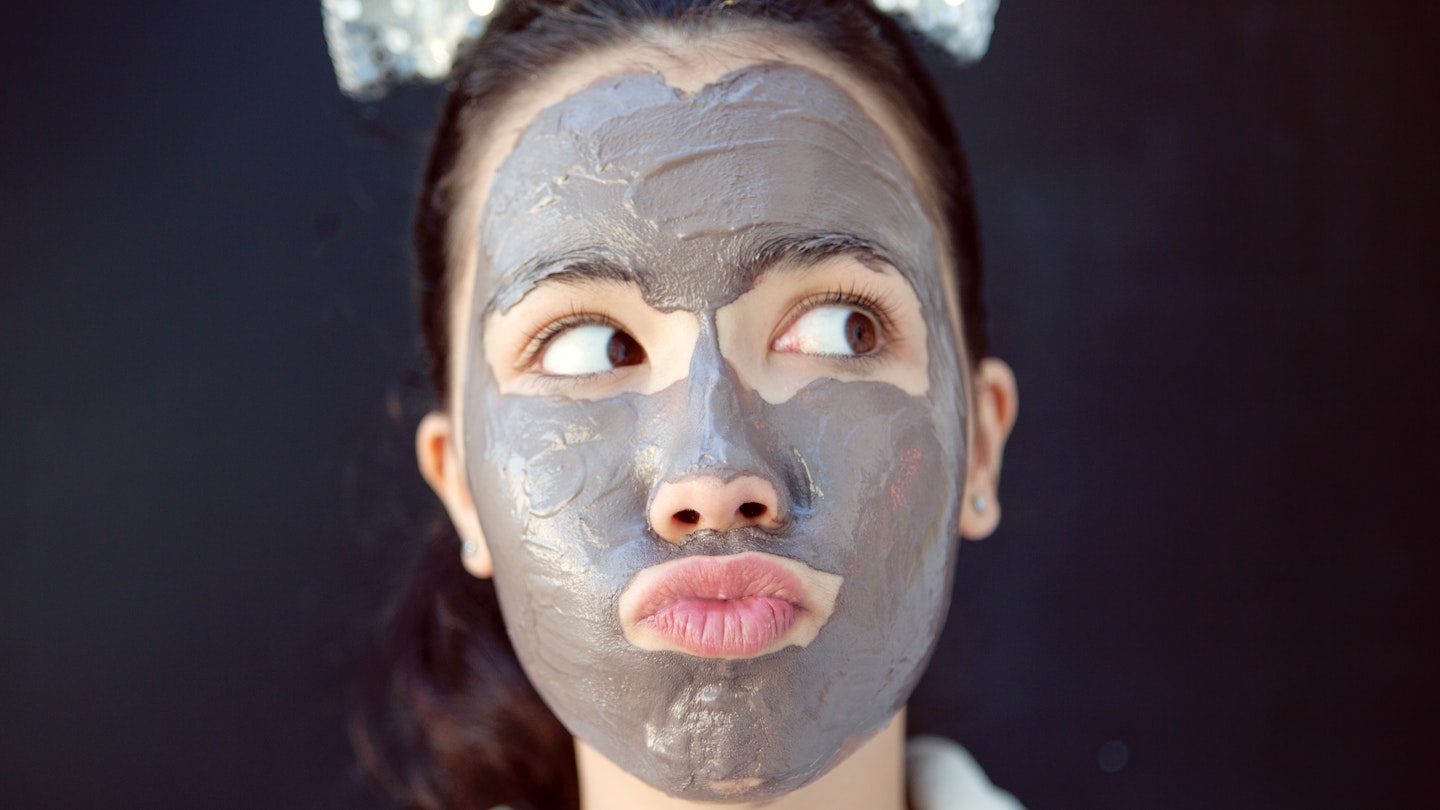As the largest organ of the human body, it makes sense that skin would also be the most complicated. It's visible, for one thing, so it's normally quite obvious if something's not quite right. It can also prove to be quite tricky to diagnose problems. For many, breakouts are totally normal and could be a result of anything from stress to tiredness or dehydration. For others, however, they may signify something deeper, like a hormonal imbalance, for example.

So much is written about skin that it can also be difficult to actually make sense of it all. What's the best skincare for you? Should you use creams, oils or something else entirely? To help break it down, I asked Rowan Hall-Farisse, head facialist at QMS, a brand renowned for its skincare, to answer all of the questions that plague us on a daily basis. As the go-to for many A-list faces including Dame Helen Mirren and Naomie Harris, she is very well-placed to help us out.
What would you say is the most common myth about skincare that you wish people knew?
Skincare needs to be consistent. There isn’t one product to fix everything, but the right products for your skin type (not just those that look good in a ‘shelfie’) used consistently is key.
Is there such a thing as dairy face?
Dairy can have an inflammatory effect on the gut, and you can sometimes see a knock-on effect of this on peoples’ skin.
Does eating too much sugar cause bad skin?
Yes, it can, and this can manifest itself as all over-breakouts which are not localised to one area. Breakouts are often linked to hormones, but the connection tends be that when we’re hormonal – we reach for sugary foods! Sugar also causes glycation, whereby sugar inhibits the enzyme that creates collagen.
Can your skin suddenly change? Is it symptomatic of something else?
Pollution exposure and stress can manifest as unexplained irritation in the skin, for example when nothing else has changed with your skincare regimen or diet, but your skin seems unhappy and sensitised.
What should you do if you suddenly experience acne?
A gentle cleanser is essential. Focus on anti-inflammatory products and ingredients, and moisturisers which help strengthen the skin’s barrier using ingredients such as ceramides. Avoid stripping the skin, as this will result in an overproduction of sebum. Try to keep blemish-busting products in the cupboard for when breakouts do appear, otherwise I'd encourage you to try to treat your skin as though it’s a healthy skin, as this tends to encourage a gentle approach.
Should you ever squeeze a spot?
No, you shouldn’t, but I do appreciate that everyone’s human and the temptation can simply be too big to resist. In these cases, only ever squeeze a spot that has a white tip. Make sure your fingers and skin are thoroughly clean, wrap fingers in tissue and squeeze the spot using a lift and roll motion – never push down, as this applies pressure to the lower part of the pore. Clean your skin again afterwards and preferably apply a BHA acid to the area.
How often should you get a facial?
This is really dependent on what you’re working towards. For example, if you’re working with your therapist to tackle pigmentation, then perhaps every other week. If you’re working to retrain your skin type, for example it’s too combination/dry/dehydrated, then every three months allows enough time for your therapist to reevaluate whether the treatments and homecare products they’re recommending are working. If you have a normal, healthy skin type, one facial in line with seasonal changes is enough to ensure you’re looking after your skin properly and tailoring your regimen according to climate and environmental factors.
When should you start using retinol, if ever?
You could perhaps begin in your late twenties with a very low dosage, encapsulated retinol formula, as this will mitigate the possibility of irritation. If you can achieve the same stimulation without retinol, i.e by using AHAs, I would recommend this approach first and foremost.
Does moisturiser really make a difference?
Moisturisers makes a difference to our skin because of the environments we live in. They create a protective barrier, while helping maintain the skin’s own natural barrier, and ensure that the surface layers of your skin are receiving what they need, without having to draw this from the deeper layers. The moisturiser you need changes depending on the season and environment, whereas products such as serums need to be changed less frequently.
Hyaluronic acid- what does it do? And should we be using it?
I recommend using a combination of collagen and hyaluronic acid of differentiated molecular sizes. When applied to a freshly exfoliated skin, the lower molecular weight hyaluronic acids can penetrate further into the deeper layers of the skin and give extraordinary plumping and hydration from the skin’s depths. The instant, and long-term, benefits include a reduction in fine lines, firmer skin, and an altogether revitalized and smoother looking complexion
Is there a difference between dry and dehydrated skin?
Dry skin is often confused with dehydrated skin, so before embarking on a tailored course of action for one or the other, make sure the condition has been correctly identified by a skincare professional. The difference between the two conditions is that dehydrated skin lacks water, while dry skin lacks oil.
Should you use a face oil if you have oily skin?
Yes – they’re great to use on oilier skins in the evening, though this can also take the form of a moisturiser containing oils. Using oils on oily skin can retrain it to produce less oil. I recommend using them at nighttime as this is when your skin does the most of its regenerating, and it will utilise the ingredients on its surface to form new, healthier behaviors.
How often should you exfoliate?
Exfoliating regularly is very important, as removing dead skin cells will enable nourishing ingredients to effectively penetrate skin and moisturise at a deeper level. QMS Medicosmetics Dermabrasive Gelis an exfoliating fluid easily tolerated by more sensitive skins and should be applied to skin for 15 minutes up to three times a week, before applying subsequent treatment serums and moisturisers.
Should you use vitamin C?
Ascorbic acid (vitamin C) is an effective ingredient in the fight against pollution; it helps by mimicking a healthy skin cell, providing energy for damaged cells to borrow from. Without vitamin C, damaged cells may grab from their healthy counterparts. Vitamin C can be applied to all skin types, but it’s best to work with a very stable formula and at a low dosage, to prevent irritation. Stable vitamin c in a low dosage will give a lovely glow and helps reduce inflammation.
What would you say is the best daily skincare routine?
A cleanser, exfoliator (which can be enzymatic or AHA but should never be a manual exfoliator such as a scrub) and serum. Masks can be added into regimens as boosters, and moisturisers may need to be switched up seasonally and depending on environment. Skin genuinely likes being told what to do, and a concise, consistent regimen will help retrain it to behave at its best.
If you could give just 3 skincare tips, what would they be?
1. Be consistent with skincare products – use the right products for your skin type and don’t chop and change them before you’ve had a chance – around 3 months - to see what’s working.
2. Always seek a therapist’s advice and try not to guess and diagnose for yourself.
3. Cleansing is the foundation of all good skincare. Use a cleanser that’s gentle enough to take over your eyes, as this is a sign it’s gentle for your skin, too. A cleanser that stings your eyes is going to be highly stimulating, whereas I recommend stimulating skin with a liquid exfoliant that can be removed and only used as often as needed, rather than daily to wash skin.
SHOP: 7 Of The Best Gentle Cleansers For All Skin Types
Best gentle cleansers for sensitive skin
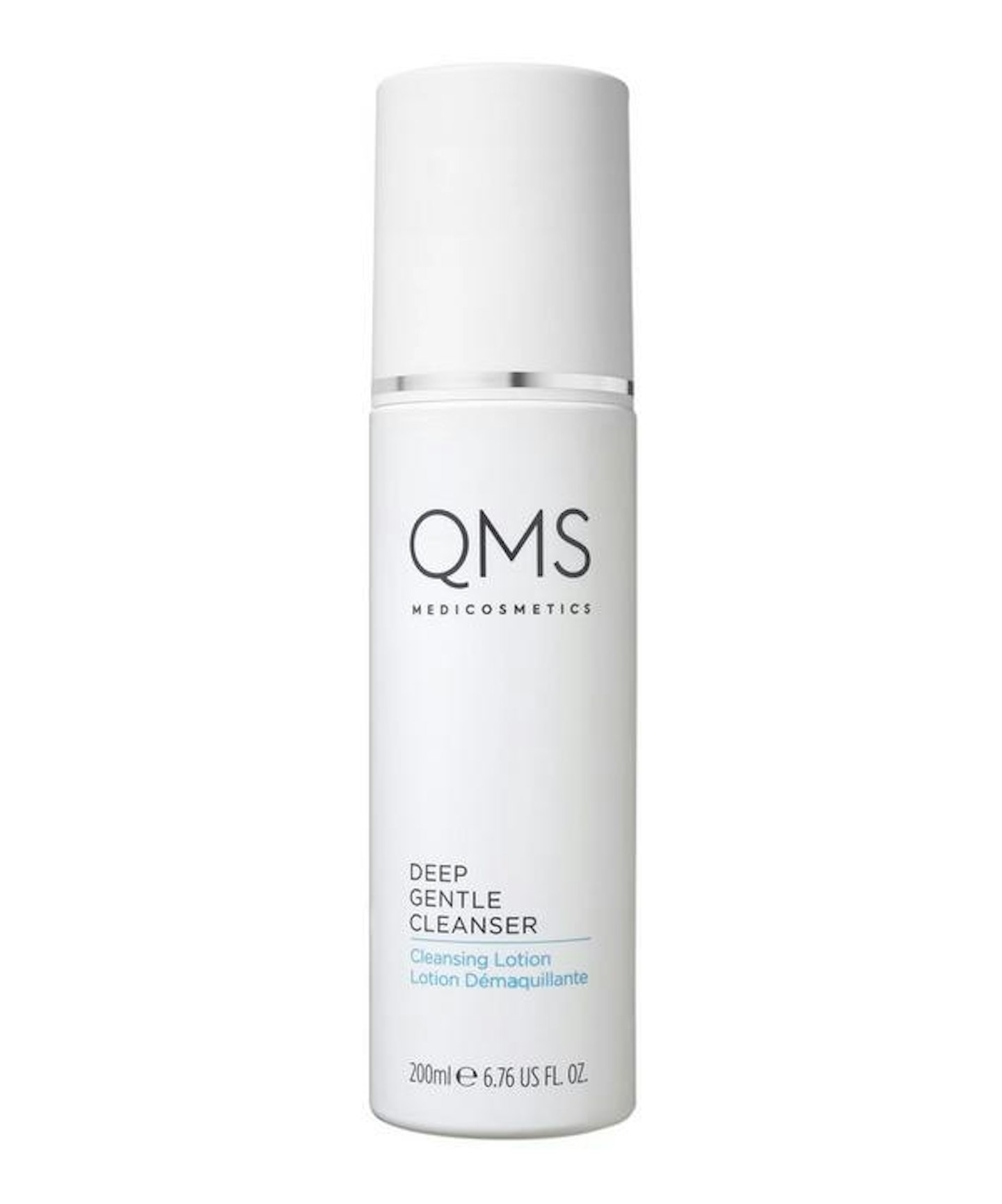 1 of 7
1 of 7QMS, Deep Gentle Cleanser, £38
When I had problem skin, I tried this and was amazed at the results. It's gentler than other cream cleansers I've tried, but it still gets rid of make-up and other impurities easily, leaving skin feeling smooth, clean and hydrated. It's free from mineral oils, which don't agree with my skin and can be used every day as it's so gentle.
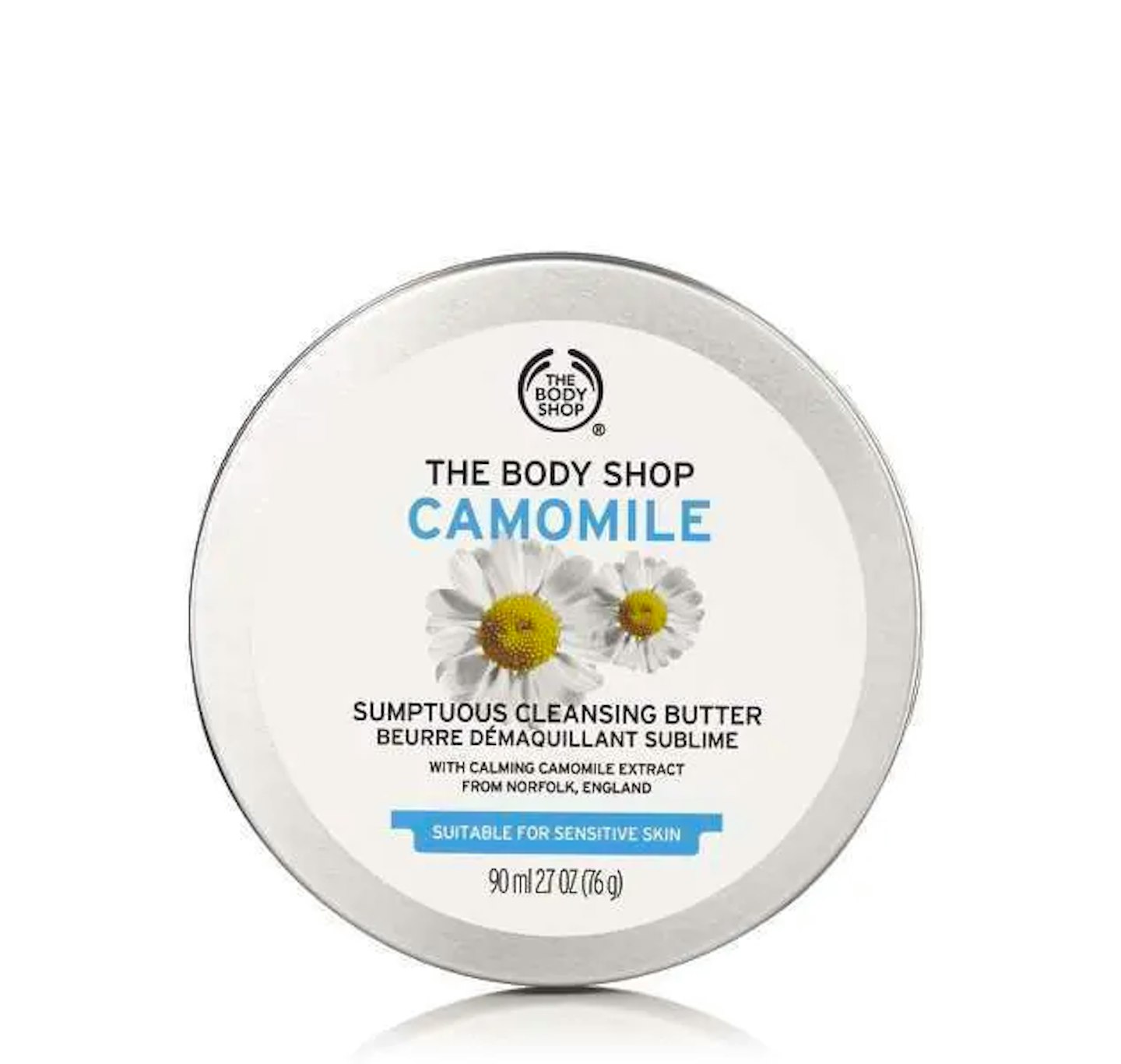 2 of 7
2 of 7The Body Shop, Camomile Sumptuous Cleansing Butter, £10
Given that it's currently the UK's favourite beauty brand, The Body Shop clearly knows a thing or two about making products that work. This cleansing butter is no exception – it removes dirt and make-up with ease and leaves skin feeling silky. It's so gentle you can use on eyes and it's suitable for even the most sensitive among us.
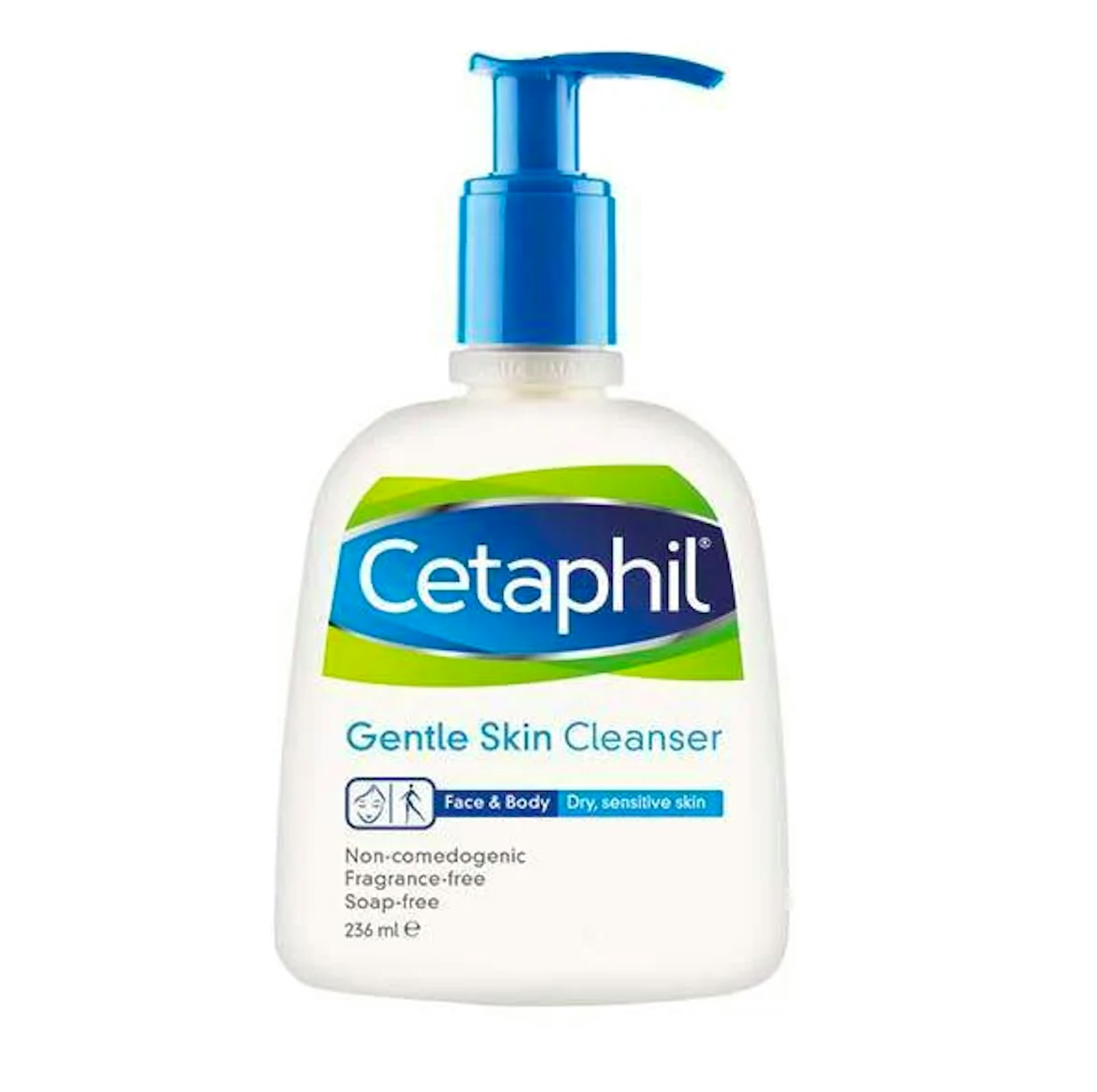 3 of 7
3 of 7Cetaphil, Gentle Skin Cleanser, £8.99
While it's relatively inexpensive, Cetaphil has amassed a loyal following thanks to its problem-solving products that are gentle enough for all skin types. The cleanser doesn't block pores and matches the natural pH of your skin, so it can be used daily.
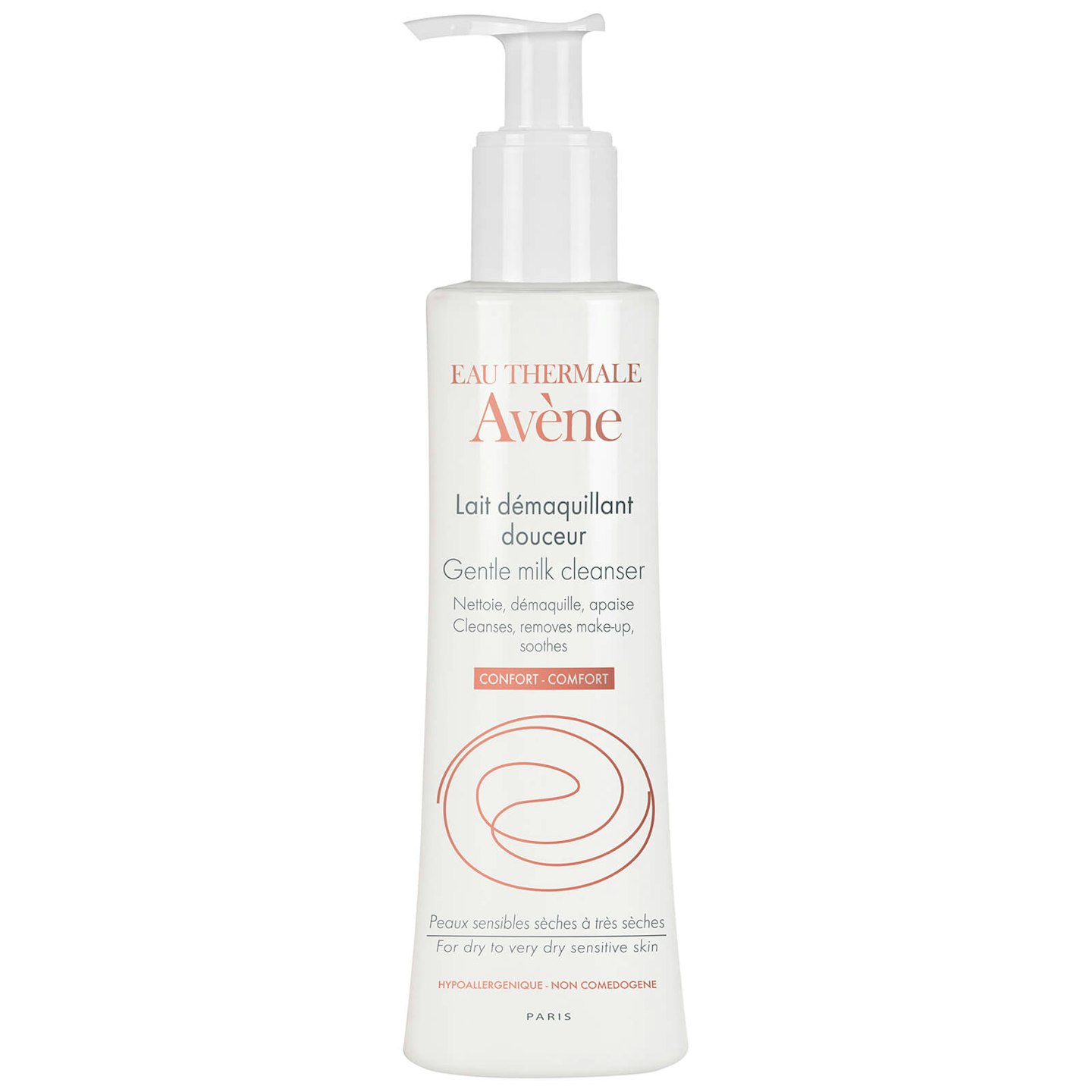 4 of 7
4 of 7Avène, Gentle Milk Cleanser, £11.50
This is particularly good if you're suffering with dry skin, which makes it a great option during the colder months. It takes off make-up effortlessly and leaves skin feeling really nourished. You don't need to rinse it off, although I would always recommend doing so.
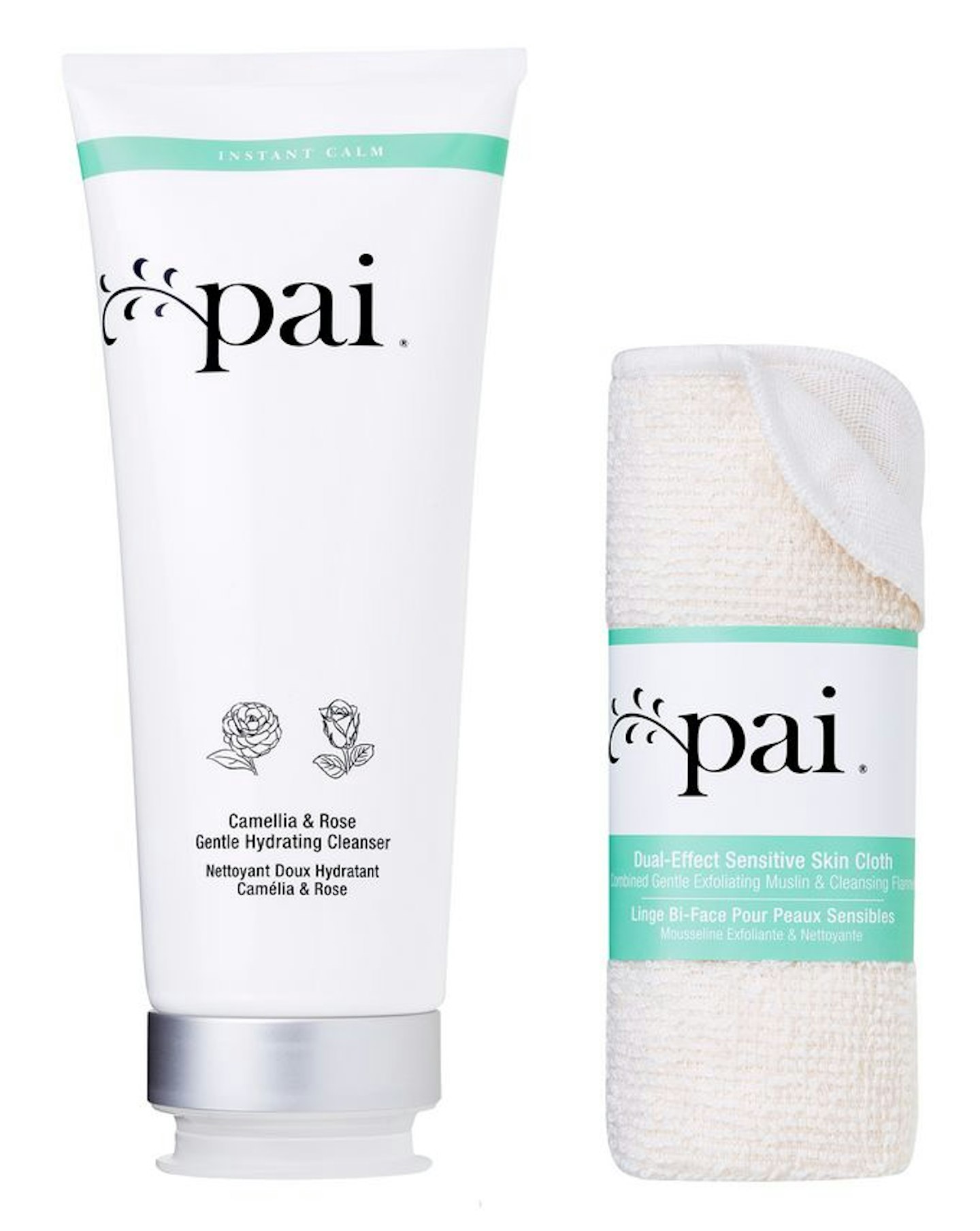 5 of 7
5 of 7Pai, Camellia And Rose Gentle Hydrating Cleanser, £40
Sarah Brown founded Pai Skincare when she failed to find products to suit her own sensitive, naturally reactive skin. As a result, all of the products are very gentle and suitable for all skin types. This brilliant cleanser removes make-up, dirt and other impurities while maintaining your skin's natural oil and pH balance.
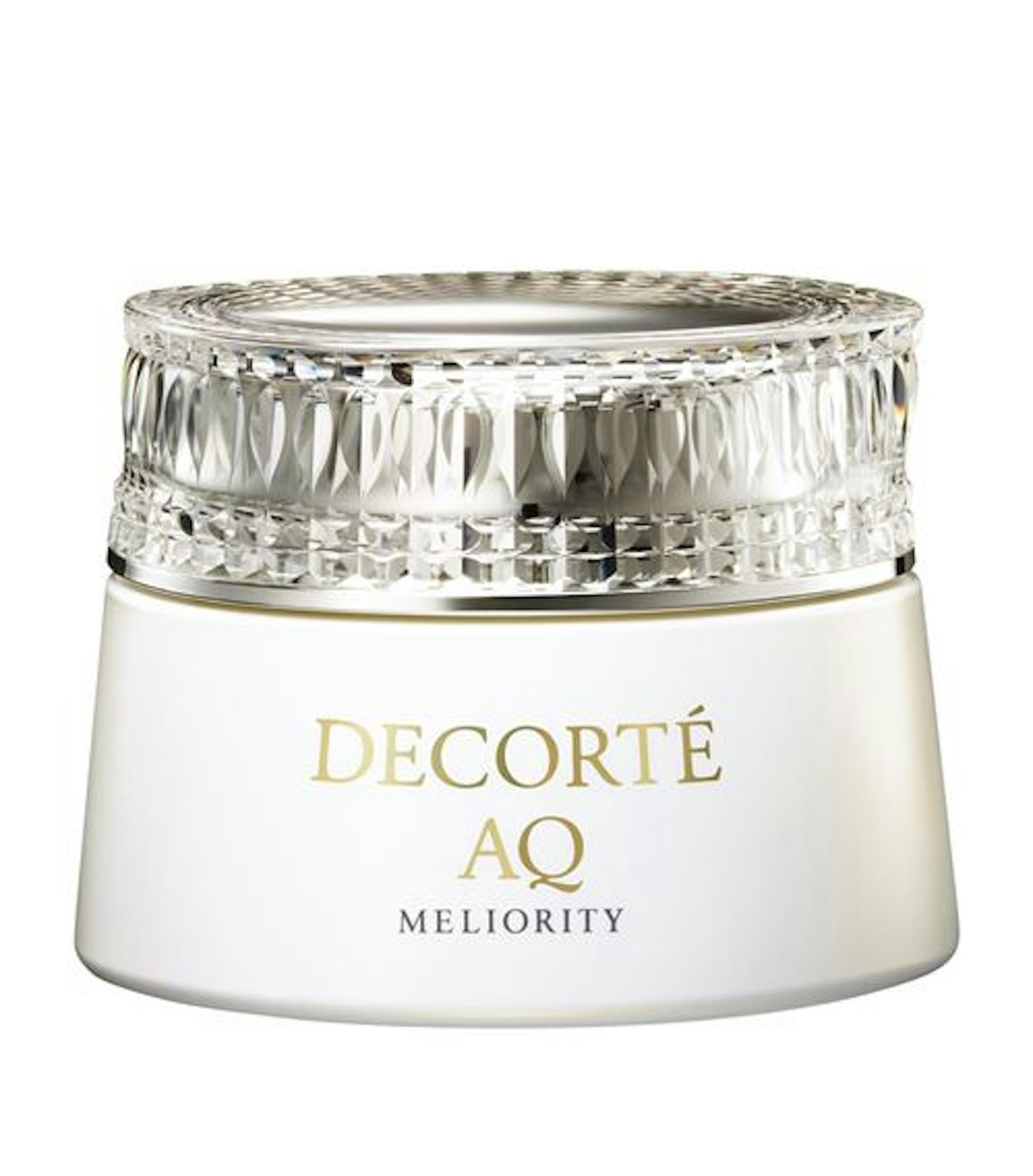 6 of 7
6 of 7Decorté, AQ Meliority Repair Cleansing Cream, £95
This is undeniably expensive but certainly worth the investment. Not only does it instantly dissolve make-up (even stubborn mascara) when rubbed onto dry skin, it also, once rinsed off, leaves your face feeling soft, supple and I found that my general complexion improved after just a few days of using it.
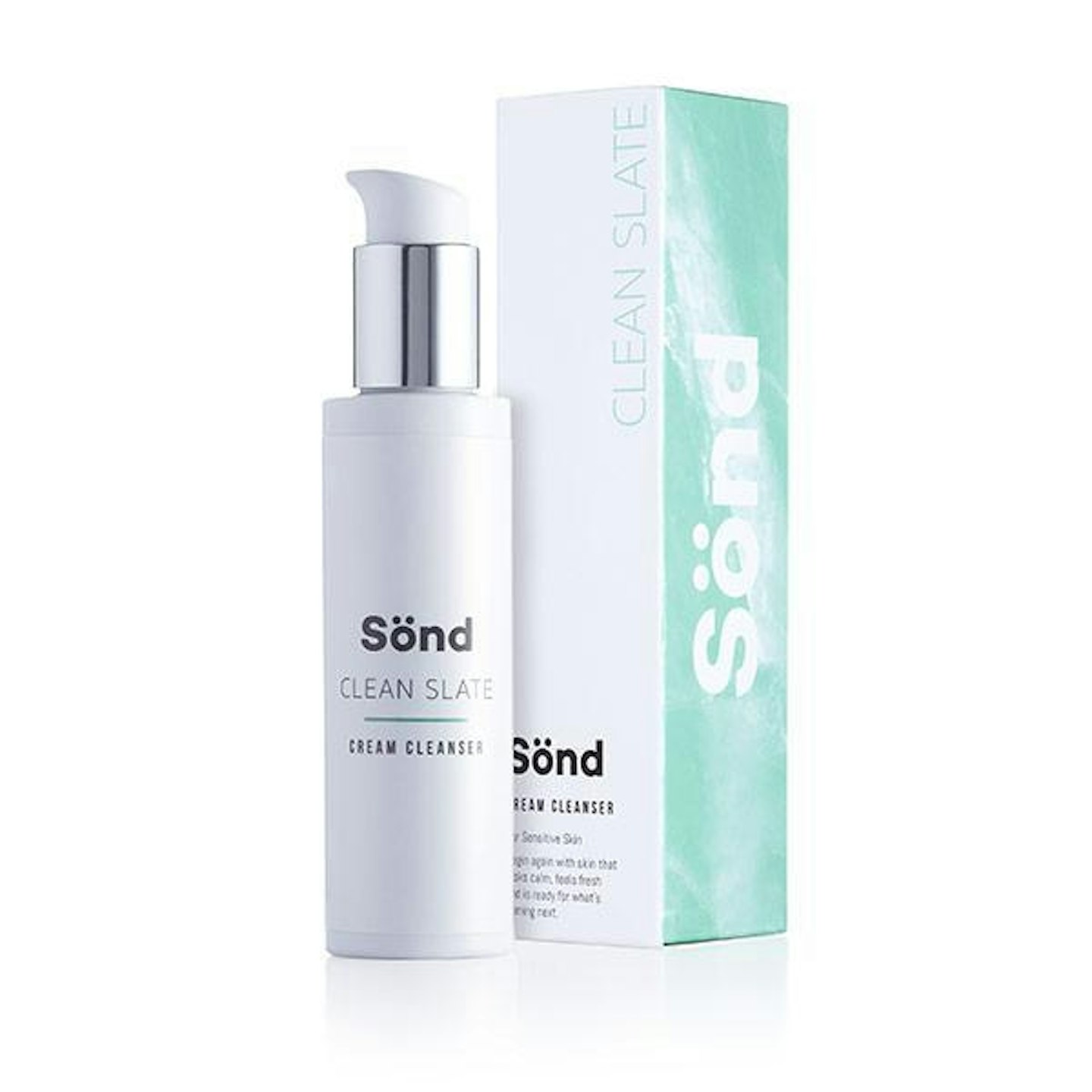 7 of 7
7 of 7Sönd, Clean Slate Cleanser, £22
If your skin is prone to reaction whenever you so much as go near a new product, it's worth having a look at Sönd. The brand specialises in alkaline skincare aimed at all skin types, and this cleanser feels lovely to use, actually works and is super-gentle, too.
